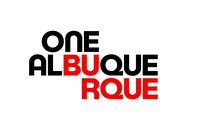01-28-15 - 15-103 - Performance Audit - Traffic Engineering Division Capital Implementation Program Payroll and Staffing - Department of Municipal Development
Read full report
Background
The Traffic Engineering Division in the Department of Municipal Development (DMD) is comprised of three main sections:
- The Traffic Engineering section (Engineering section), which handles inter-agency and citizen issues, performs traffic studies, and coordinates projects;
- The Traffic Management section (Management section), which is responsible for traffic signal operations and maintenance; and
- The Traffic Operations section (Operations section), which is responsible for the fabrication, installation, and maintenance of street signs and markings.
The audit focused on the Management and Operations sections only, and did not review processes for the Engineering section. The employees in the Management and Operations sections are responsible for completing Capital Implementation Program (CIP) projects and repair and maintenance (R&M) jobs. CIP projects are new, upgraded, or repaired assets costing $5,000 or more, or assets that must be entirely replaced regardless of cost. R&M jobs are the daily upkeep of the Traffic Engineering Division assets. Work orders must be completed for all CIP projects and R&M jobs. Employees may work on CIP projects, R&M jobs, or both. During fiscal year (FY) 2014 the Division had 24 CIP funded positions and 30 General Fund (GF) funded positions.
Findings
The Traffic Engineering Division should implement an electronic work order system for the Management section, and should start requiring employees to indicate on the Management and Operations work orders whether the work performed is CIP or R&M. Currently, the Management section uses hard copy work orders that are not effective in tracking the resources used in the division. Also, at no point in the process does the information from the work orders get recorded into any type of tracking system. The hard copy work orders make it nearly impossible to analyze information or identify issues. In addition, employees in both the Management and Operations sections are not required to indicate whether the type of work performed was a CIP project or an R&M job. Due to this, the Traffic Engineering Division is not able to determine how much time and resources are spent on CIP versus R&M, and may not know how much personnel funding is actually needed for each type of work.
The Traffic Engineering Division should record payroll expense to the CIP fund and GF based on the type of work performed. Instead, the Traffic Engineering Division employees’ payroll expense is either charged 100 percent to the CIP fund or 100 percent to the GF, regardless of whether the employee works on CIP projects, R&M jobs, or both. Based on testing of a sample of 46 work orders, 16 exceptions were noted where the work performed was CIP, but the employees’ payroll expense was covered by the GF. In addition, five exceptions were noted where the work performed was R&M, but the employees’ payroll expense was covered by the CIP fund. As a result, the payroll expense in the fund financial statements may not reflect how resources were actually used.


